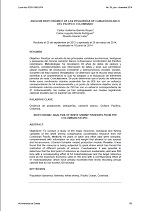
Objective: To conduct a study of the major economic, biological and fishing variables of the white shrimp (Litopenaeus occidentalis) resource from the Colombian Pacific. Method: 49 years of catch and effort data were compiled, complemented with information on size and weight that allowed to use urplus and bio-economic (Gordon-Schaefer model)...
31/05/2018
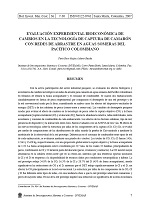
With active participation of the fishing industry, the biological and economic effects of technological changes in shrimp trawling fishing on the Colombian Pacific coast were evaluated to reduce bycatch and fuel consumption. Two boats were used simultaneously in experimental fishing surveys that compared the performance of a trawl net prototype...
31/05/2018
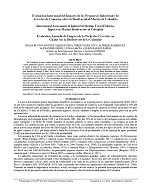
In Colombia, industrial shrimp trawling has been carried out since 1958 on the Pacific coast and since 1969 in the Caribbean, generating income, foreign currency, food and employment for the fishing sector, but with a high environmental cost. In order to evaluate over time the impact of this fishery for...
31/05/2018
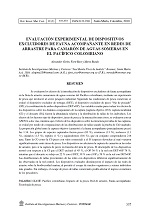
The effects of the introduction of bycatch reduction devices in the shrimp trawling fleet in shallow waters of the Colombian Pacific, were tested through a fishing experiment involving the industrial fishing sector. Following the commercial fishing conditions, we evaluated the turtle excluder device (TED), fish excluder device “fish eye” (OP) and...
31/05/2018
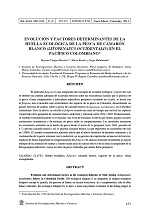
The ecological fishprint is an adaptation of original ecological footprint concept to quantify the pressure of fishery on marine ecosystems. In a complementary role of other fishery indicators, this ecological fishprint try to show a more ecosystemic evaluation of the fishing impact in Colombian, with a first application on the white shrimp...
31/05/2018
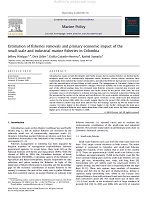
Colombia has coasts on both the Atlantic and Pacific Oceans, but its marine fisheries are limited by the relatively small size of commercially important stocks. However, diverse fishery resources have traditionally been exploited by coastal communities, and industrial fisheries have grown in recent years with the intensification of tuna fishing in...
31/05/2018
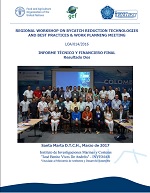
As part of the administrative and exchange activities in the development of the project "Sustainable management of bycatch in the trawl fisheries of Latin America and the Caribbean (REBYC-II LAC)", FAO and INVEMAR organized and carried out the "Regional workshop on technology and best practices to reduce bycatch", at the...
30/05/2018
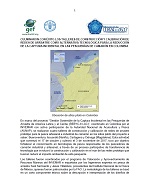
Within the framework of the project "Sustainable Management of Incidental Catch in the Fishing Fisheries of Latin America and the Caribbean (REBYC-II LAC)", coordinated in Colombia by INVEMAR with active participation of the National Authority of Aquaculture and Fisheries (AUNAP), four workshops were held to build and calibrate prototype trawl...
30/05/2018
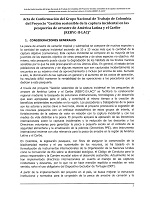
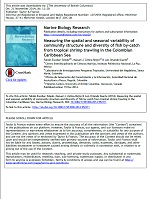
The highest rates of incidental catch of non-target species is associated with shrimp bottom trawl fisheries. This could lead to adverse effects on the structure and functioning of ecosystems. However, the structural and functional variability of fish communities captured as by-catch from this fishery in the Colombian Caribbean Sea have been poorly...
30/05/2018
